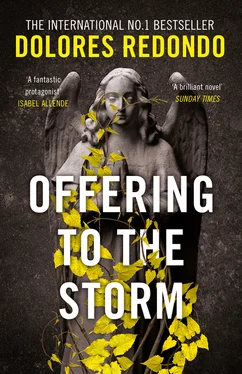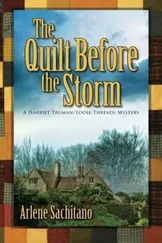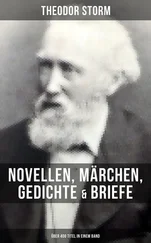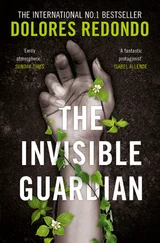‘It’s a wonderful spell, commanding the demon to perform a task that will take an eternity. Very similar to the eguzkilore used against witches, who must count all the thorns on a thistle before entering a house. As this takes all night, by the time dawn comes they have to run and hide. What’s interesting about Inguma is that, although it’s one of the least-studied night demons, it has identical equivalents in other cultures.’
‘I’d like to see Esparza explaining to Judge Markina that his daughter was killed by a night demon,’ said Montes.
‘He hasn’t confessed to killing her, but he hasn’t denied it either. He insists that he gave her up,’ explained Iriarte.
‘“Like all the other sacrifices”,’ added Zabalza. ‘What does he mean? Do you suppose this isn’t the first time he’s done this?’
‘Well, he’s going to have a hard time blaming it on a demon,’ said Montes. ‘I questioned some of his neighbours this morning and was lucky enough to find a woman who’d been watching television late that night. She “happened” to look out of her window, and saw the couple arrive home after their evening out. Twenty minutes later, she was surprised to hear the car leave again. She said she was worried the baby might be unwell, so she listened out. Twenty minutes later, she heard the car return. This time, she peeped through the spyhole in her front door, just to make sure the baby was all right, and saw Esparza go into the house alone.’
Iriarte shrugged.
‘Then we’ve got him.’
Amaia agreed.
‘Yes, everything points to the husband, but three things need clearing up: the smell and saliva traces on the bear; Esparza’s obsession with his daughter’s body not being cremated; and what he meant by “Like all the other sacrifices.” Incidentally,’ she said, holding up the photograph she had been examining, ‘is it a trick of the camera, or is there something in the coffin?’
‘Yes,’ admitted Iriarte. ‘Initially, we mistook it for quilting, but the funeral director alerted us. It seems Esparza placed three bags of sugar wrapped in a white towel in the coffin. Clearly, so that the bearers wouldn’t notice it was empty.’
‘Right,’ said Amaia, putting the photograph down next to the others. ‘We’ll wait and see if the tests on the third trace open up another line of inquiry; he may have picked up someone on the way. Good work,’ she added, signalling that the meeting was over. Jonan lagged behind.
‘Is everything okay, boss?’
She looked at him, attempting to disguise her unease. Who was she trying to fool? Jonan knew her almost as well as she knew herself, but she was aware that she couldn’t always tell him everything. She put him off the scent by mentioning something else that was bothering her.
‘My sister Flora is in Elizondo, insisting we hold a funeral service for our mother; just thinking about it makes me feel sick, and as if that weren’t enough, the rest of my family is siding with her, including James. I’ve tried to explain my reasons for thinking she’s still alive, but I’ve only succeeded in making them angry with me for preventing them from closing this chapter in their lives.’
‘If it’s any consolation, I don’t believe she fell in that river either.’
Amaia gave a sigh, looking straight at him.
‘Of course it is, Jonan, very much so … You’re a good cop, and I trust your instinct. It’s a great relief to have you on my side.’
Jonan nodded without much conviction, as he went round the table gathering up the photographs.
‘Do you need me to go somewhere with you, boss?’
‘I’m off home, Jonan,’ she replied.
He smiled wistfully at her on his way out, leaving her with the familiar feeling of having been unable to pull the wool over his eyes.
As she drove towards the Txokoto River, she passed Juanitaenea , the house that had belonged to her grandmother. James had planned to restore it so that they could live there; the building materials he’d ordered were sitting on pallets outside the house, but there was no sign of any activity.
She was tempted to stop off at the bakery on her way, but decided against it: she had too much going on in her head to become embroiled in another discussion with Ros over the funeral. Instead, she crossed the Giltxaurdi Bridge and parked near the old market. She knew the house she was looking for was close by, but all the houses on that street looked the same and she couldn’t remember which one it was. In the end she took a guess, smiling with relief when Elena Ochoa opened the door.
‘Can we talk?’ Amaia asked her.
The woman responded by seizing her arm and pulling her into the house, then she leaned out to look up and down the street. As on her previous visit, Amaia followed Elena through to the kitchen. Not a word was exchanged as Elena made coffee for them both, placing two cups on a plastic tray covered with kitchen roll. Amaia was grateful for the silence; every instant the woman spent on her precise coffee-making ritual gave Amaia time to order the instincts – for she could scarcely call them thoughts or ideas – that had brought her there. They clattered in her head like the echo from a blow, as the stream of images in her mind amalgamated with others engraved on her memory. She had gone there searching for answers, yet she wasn’t sure she had the questions. Aunt Engrasi always used to tell her: ‘You’ll only find the answers if you know which questions to ask.’ But all she had to go on in this case was a small, white coffin, weighted with bags of sugar, and the word ‘sacrifice’. It was an ominous combination.
She noticed that the woman was trying to steady her hands as she spooned sugar into two cups. She began to stir the brew, but the chink of the spoon on the china seemed to exasperate her to the point where she hurled the spoon on to the tray.
‘Forgive me, my nerves are bad. Tell me what you want, and let’s be done.’
This was Baztán hospitality. Elena Ochoa had no desire to speak to her, in fact she couldn’t wait for her to leave the house and would heave a sigh of relief when she saw her walk through the door, yet she wouldn’t renege on the sacred ritual of offering a visitor something to drink or eat. She was one of those women who did what had to be done. Reassured by that thought, Amaia cupped her hands round the coffee she wouldn’t have time to drink, and spoke.
‘When I came here last, I asked you whether the sect had ever carried out a human sacrifice …’
At this, Elena began to shake uncontrollably.
‘Please … You must leave, I have nothing to say.’
‘Elena, you’ve got to help me. My mother is still out there. I need you to tell me where that house is, I know that’s where I’ll find answers.’
‘I can’t – they’ll kill me.’
‘Who?’
She shook her head, terrified.
‘We’ll give you protection,’ said Amaia, casting a sidelong glance at the little effigy of the virgin with a flickering candle in front of it, and a worn string of rosary beads draped at the base; beside it stood a couple of postcards bearing images of Christ.
‘You can’t protect me from them.’
‘Do you think they carried out a sacrifice?’
Elena stood up, emptying the remains of her coffee into the sink, her back to Amaia as she washed up her cup.
‘No. The proof is that you’re still alive; at the time, the only pregnant woman in the group was Rosario. I’ve thanked God a thousand times for keeping you safe. Perhaps in the end they were trying to impress us, to cow us into submission by making themselves seem more dangerous and powerful …’
Amaia took in the array of talismans with which Elena had surrounded herself: the poor woman was desperately trying to convince herself that she was in control, and yet her body language betrayed her.
Читать дальше












